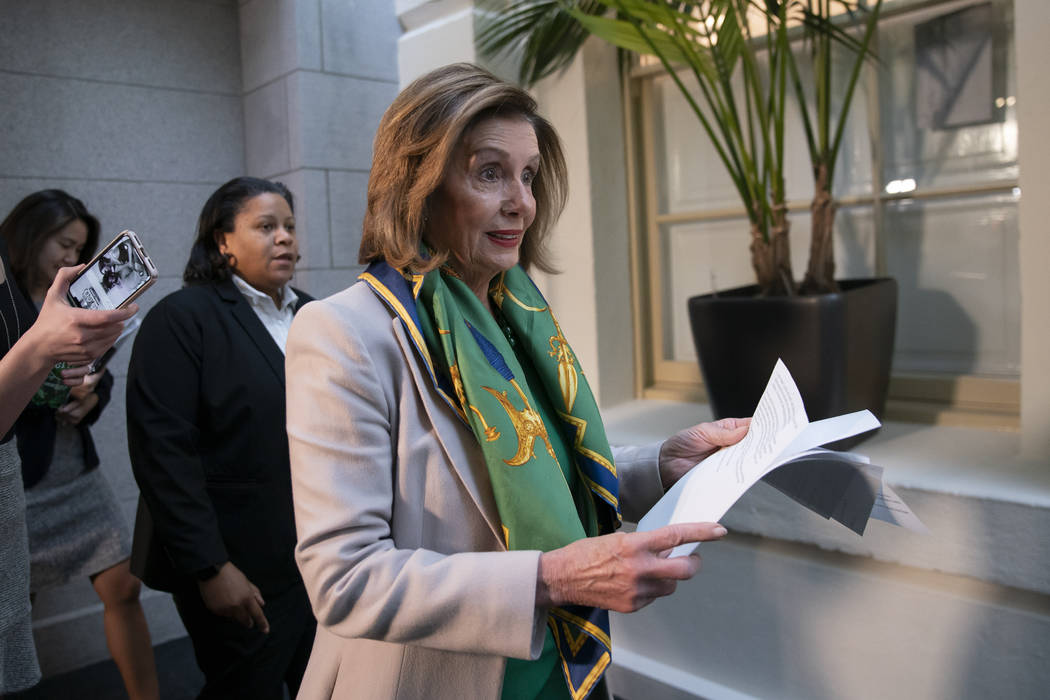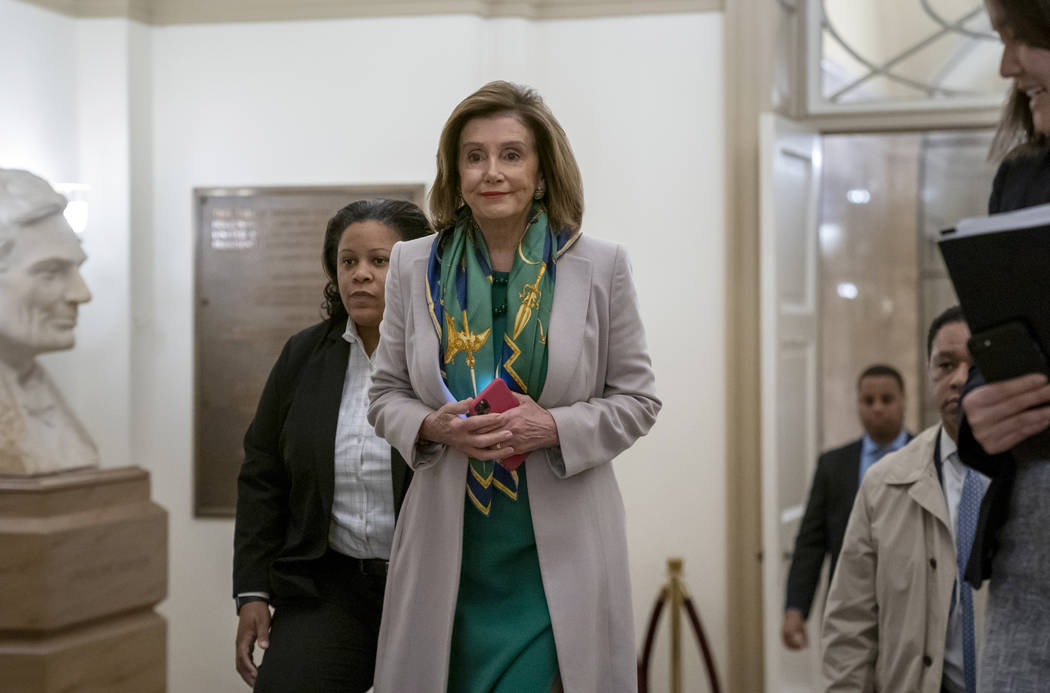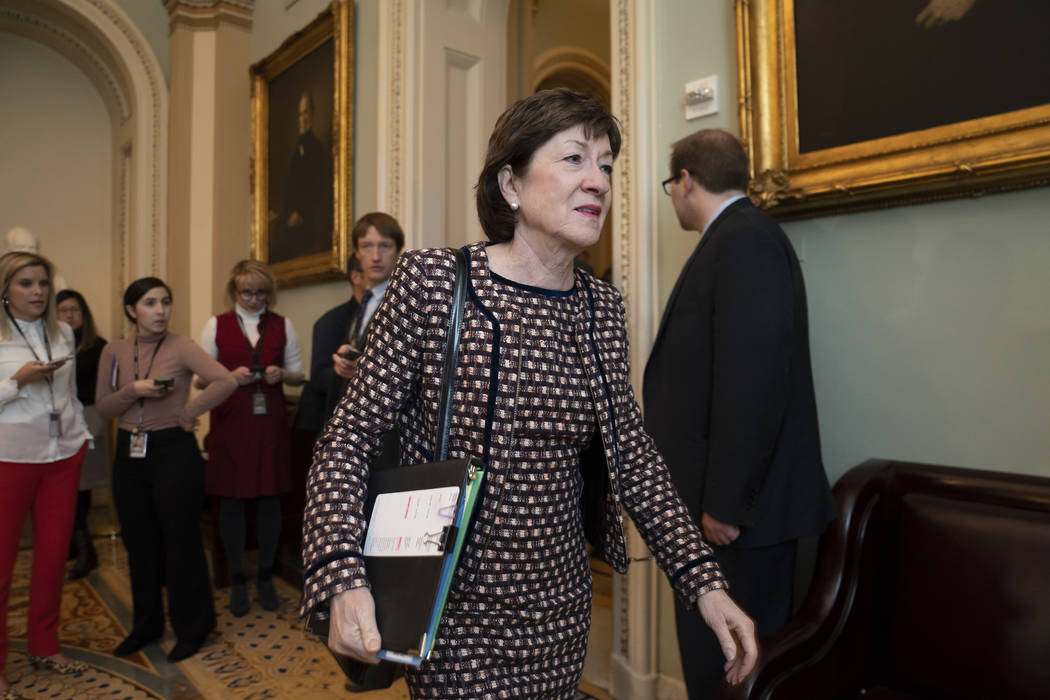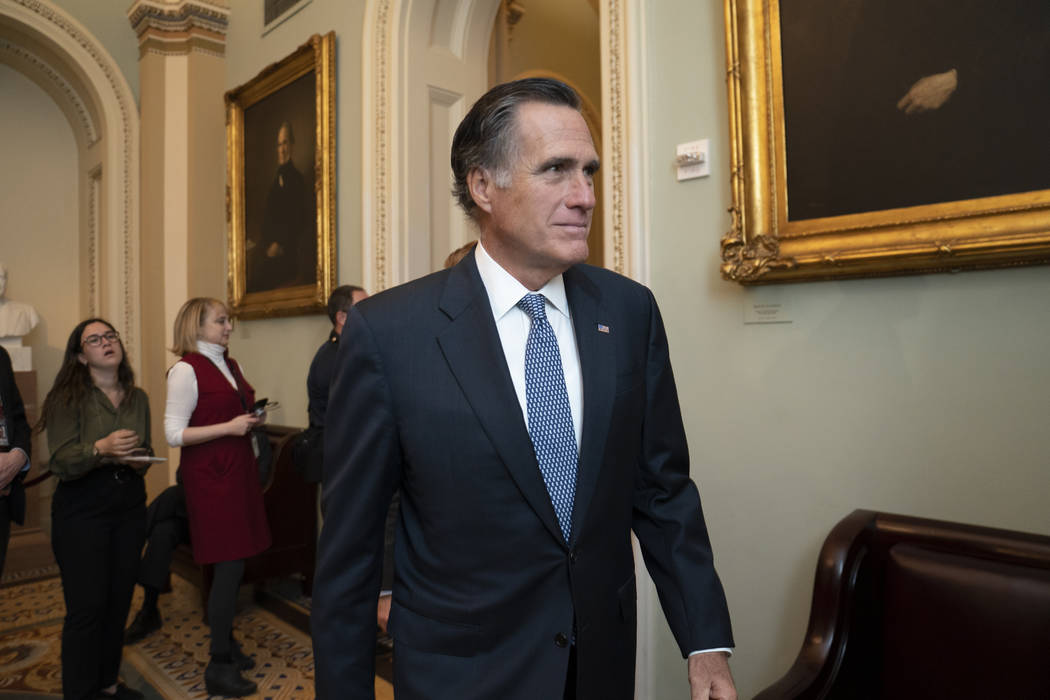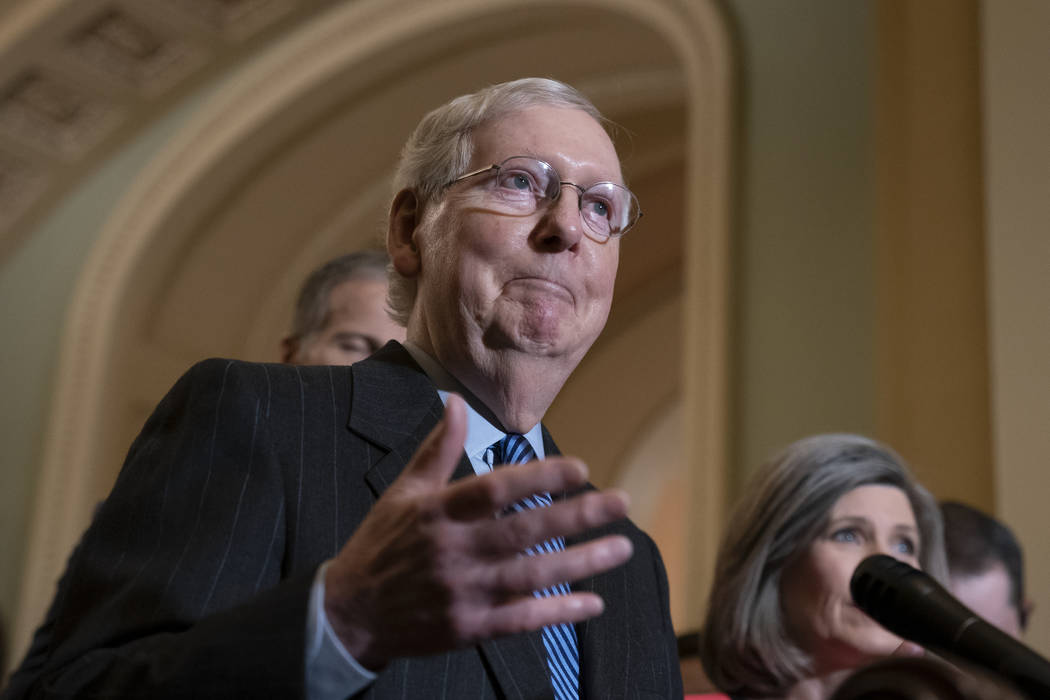House to vote Wednesday on sending impeachment to Senate
WASHINGTON — The House will vote Wednesday to send the articles of impeachment against President Donald Trump to the Senate following weeks of delay to pressure Republicans to call witnesses in a trial that will begin next week.
House Speaker Nancy Pelosi scheduled the vote after huddling with her Democratic caucus.
Trump has urged the Senate to dismiss the charges, a request that Pelosi warned Senate Majority Leader Mitch McConnell, R-Ky., against.
“The American people deserve the truth, and the Constitution demands a trial,” Pelosi said.
Pelosi said the country would view “the Senate’s move to begin the trial without witnesses and documents as pure political cover-up.”
A battle remains in the Senate over whether to call witnesses as Democrats have pushed the GOP majority to do. McConnell told reporters Tuesday the Senate would become an impeachment court on Thursday, with Supreme Court Chief Justice John Roberts presiding.
It would be only the third impeachment trial in U.S. history. The Senate acquitted President Andrew Johnson in 1868 and President Bill Clinton in 1999.
The trial is expected to begin in earnest on Tuesday, following the Martin Luther King Jr. holiday weekend.
The majority leader also said he has the 51 votes to begin the trial without a decision on witnesses. McConnell said he would use the Clinton impeachment hearing as a model to determine later if witnesses should be called.
McConnell said the House passed what is essentially a “half-baked censure resolution” and has tried to pressure the Senate to finish their job by reopening and prosecuting the cases with witnesses the House failed to interview.
He said the Senate would move beyond “partisan passions” and end the political game with “seriousness and sobriety.”
The Senate could vote to dismiss the impeachment charges against Trump with just a simple majority of 51 votes. The GOP holds a 53-47 majority, but McConnell ruled that out Tuesday following a luncheon with his GOP conference.
“There is little or no sentiment in the Republican conference for a motion to dismiss,” he told reporters.
Senate Democrats, including Catherine Cortez Masto and Jacky Rosen, support a trial with witnesses and a fair process to hear the House case against the president.
Several GOP senators have already insisted on a trial, and testimony from witnesses at some point in the trial.
A process that would allow a vote on witnesses is being crafted by Sen. Lisa Murkowski, R-Alaska, although it was unknown whether a resolution would be introduced this week.
Sen. Mitt Romney, R-Utah, and Sen. Lamar Alexander, R-Tenn., have backed a Senate trial with witnesses in the trial that centers around a July 25 telephone call between Trump and Ukranian President Volodymyr Zelenskiy.
During that call Trump asked Zelenskiy to investigate political rival Joe Biden, whose son, Hunter, was on the board of directors of a Ukrainian gas company, Burisma, while his father served as vice president.
The request for a foreign country to investigate a political rival led to the first article of impeachment against Trump. A second article, obstruction of Congress, stems from the president’s actions to block testimony from administration and other officials.
Both articles passed the House in December along mostly party lines, with Nevada Democrats Dina Titus, Steven Horsford and Susie Lee voting to approve the articles of impeachment and Republican Rep. Mark Amodei, R-Nev., voting against them.
Since the articles of impeachment have passed, Pelosi has delayed sending them to the Senate to leverage McConnell to hold a “fair trial” that would include witnesses.
During the delay, former national security adviser John Bolton, a witness sought by Democrats, said he would testify before the Senate if subpoenaed.
Bolton declined to testify in the House impeachment hearing, and Democrats did not subpoena the former adviser claiming the legal battle would have delayed the inquiry.
Other national security officials testified before the House that Bolton was highly critical of Trump’s personal lawyer, Rudy Giuliani, who was operating a shadow foreign policy operation in Ukraine counter to U.S. goals and policy.
Giuliani was pressuring Ukraine officials to launch an investigation into Biden.
Bolton, who according to House testimony from other national security officials, called Giuliani a “hand grenade” with the potential problem who could take down the administration.
Trump, who initially wanted witnesses in the Senate trial, has since called for GOP senators to vote to dismiss the articles of impeachment outright.
The president also has threatened to invoke executive privilege to block Bolton from testifying before the Senate.
McConnell said he drafting a resolution that would outline the procedures of the trial, which lawmakers speculate could last between five and six weeks.
That organizing resolution could become the first vote in the impeachment trial when senators return next week.
A vote to remove the president from office based on the articles of impeachment passed by the House would need a two-thirds majority, or 67 votes, in the Senate.
Trump enjoys strong support among a majority of Republican senators, who are unlikely to help minority Democrats remove the president from office.
Contact Gary Martin at gmartin@reviewjournal.com or 202-662-7390. Follow @garymartindc on Twitter.



